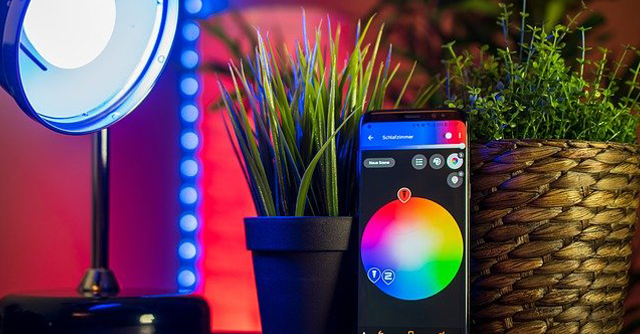
How to keep hackers out of your smart devices


With many businesses switching to remote or hybrid workspaces, smart home devices have become an integral part of our homes and lives. Say, a speaker that can also curate a shopping list, a doorbell with a fully functioning camera or a smoke alarm that connects directly to your mobile phone to remind you to replace those batteries. The list is long suggesting that these devices are here to stay. Unfortunately, as our homes become ever more connected, they have also become a breeding ground for hackers that are stealing our private and personal information.
“In an increasingly connected world, it would be hard to find a home that doesn’t have some sort of smart device. By using smart home devices as a gateway, intruders can leave behind a path of total chaos, affecting not only personal privacy but also resulting in a possible corporate-wide data breach,” said Check Point researchers.
Researchers at cybersecurity firm Check Point, believes it’s time for users to take necessary steps to keep smart home devices out of the hands of hackers and have shared some best practices to keep smart home cyber criminals at bay.

1. Update software: Keeping your finger on the pulse and updating your devices when required is a must to keep your home and your data protected, said researchers. This is because the way that bad actors try to attack devices is constantly changing. So it’s important to have the newest form of protection against these evolving threats.
2. Set up a standalone Wi-Fi network for your devices: Most routers will allow you to create a separate network for your smart home devices, which will create more obstacles for hackers to overcome when trying to access your devices.
“You may also wish to consider creating a ‘guest setting’ for your Wi-Fi that will still allow your friends and family to access the internet but without the added risk of having to write down or virtually share your primary network login details,” they recommend.

3. Level up your passwords: When it comes to creating strong passwords for your devices, make sure that they are random and not personal to the individual that owns the device. This is because this information is very accessible to threat actors and won’t offer the best protection for your home. According to researchers, since complex passwords are harder to remember, one should consider using a password manager to help keep your devices protected.
4. Double authentication: By setting up an additional form of authentication, known a two-factor authentication or 2FA, hackers can be deterred from accessing your devices. While this may pose a mild inconvenience to the consumer, it’s nothing compared to the turmoil a hacker can cause once they’ve gained access to your smart home devices.
5. Encryption: Researchers also said by ensuring that your router is using the highest level of encryption you can keep your data safe from unwanted threats. Make sure not to forget any internal Wi-Fi extenders or power line home networks that will also have a setting to allow encryption across the home network. This, in turn, will add an extra layer of protection for, not only your router but also for your smart devices.

6. Change the default password on your router: This is separate to your Wi-Fi passwords but just as key. Check Point researchers said, “Most routers are given a simple default password to allow for easy set up when first installed but as a result are just as easy for hackers to guess, there are even lists of the most common ones online, so be safe and change them as soon as possible.”
7. Keep your work devices protected: With more of us now working from home, it’s important for your work devices to be just as protected as your personal devices when they are relying on your home Wi-Fi. You can do this by making sure that your devices are up to date with the latest anti-malware technology. By keeping them secure, you can reduce the threat posed to your smart devices.
Sundar Balasubramanian, Managing Director, India, and SAARC, Check Point Software Technologies explained that most often, we overlook the hidden threats posed by our smart home devices that allow malicious hackers with sinister intentions to watch and listen to our most private conversations conducted in the comfort and confines of our own homes.

“With every year that passes, we are seeing a constant trend of hackers becoming ever more aggressive and, as a result, any device connected to the internet is ‘fair game.’ In the landscape we now live in, it’s not enough to assume that these incidences just ‘won’t happen’ to you and all owners of these devices should be taking extra precautions to keep their information protected as it only takes only one overlooked device for a hacker to create untold harm and distress,” he cautioned.
